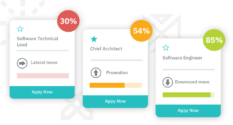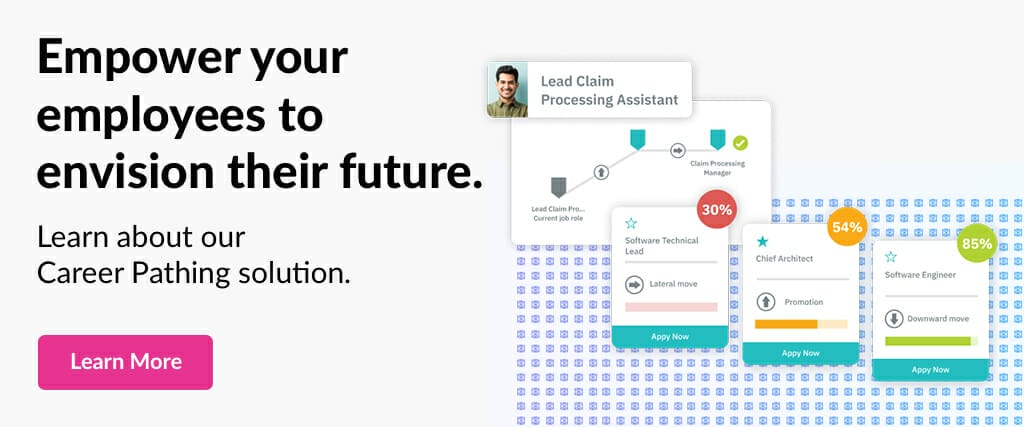Implementing Career Path Initiatives

Implementing career path initiatives has become a top priority for organizations seeking to retain and develop talent. These initiatives help companies provide clear growth pathways for employees, which, in turn, boosts engagement and reduces turnover. However, the success of such programs relies heavily on having accurate, structured data on skills and jobs. Unfortunately, many organizations struggle to maintain “clean” data, encountering issues such as fragmented skills databases, redundant job descriptions, and outdated information. Without clean data, it becomes challenging to identify skill gaps, map out career paths, or align employees with future roles effectively.
The Data Challenge in Career Path Initiatives
Many companies today manage multiple, disconnected skills databases that serve various functions within the organization. While each database may have a specific purpose, they are seldom integrated, creating significant inconsistencies and redundancies. These fragmented systems can complicate career pathing efforts, as each department may have its own version of a skill set or competency model, resulting in conflicting information about what is required for particular roles. Furthermore, job descriptions are often duplicated across different business units without consistency, adding to the confusion. For instance, a role such as “Project Manager” might have different competencies listed in different departments, making it difficult to ensure consistency across the organization.
Outdated data further complicates the picture. In a rapidly evolving job market, where the skills required for a role can shift significantly over a few years, relying on outdated information poses a real challenge. The inability to accurately assess current skills or future needs makes it difficult for HR teams to pinpoint skill gaps and map out coherent career paths. This lack of updated, structured data affects every aspect of career pathing, from assessing current capabilities to identifying future roles that employees might aspire to. Ultimately, these inconsistencies reduce the effectiveness of career path initiatives, leading to missed opportunities for employee development and organizational growth.
Building a Solid Foundation with Skills Taxonomy and Clean Job Architecture
For career path initiatives to be effective, companies need a well-defined skills taxonomy and a clean job architecture. A skills taxonomy is essentially a standardized framework for categorizing and organizing skills across the organization. This common language makes it easier for teams across different departments to understand and discuss skills, ensuring that everyone—from employees to managers and HR leaders—is aligned when it comes to competencies and development needs.
Equally important is the concept of a clean job architecture. This involves creating accurate, up-to-date job descriptions that reflect the actual responsibilities and competencies required for each role. Clean job architecture serves as the foundation for structured career paths, helping organizations map clear progression routes and showing employees what they need to advance. However, building and maintaining a job architecture is a complex task. It typically requires a significant investment of time, resources, and, often, the expertise of third-party consultants who specialize in job design. Many companies find it challenging to sustain this level of effort over time, especially as the business grows or changes direction.
A comprehensive skills taxonomy and a structured job architecture together create a framework that allows for more effective talent management. With these elements in place, companies can perform precise skills assessments, identify gaps, and develop tailored training programs that help employees grow within the organization. However, achieving this framework can be difficult, especially without automated tools that streamline the process.
Transforming Career Path Initiatives with TalentGuard’s WorkforceGPT
TalentGuard has developed a groundbreaking solution to the challenges of career path implementation with its WorkforceGPT platform. This advanced tool is transforming how organizations approach career pathing by standardizing skills taxonomy and cleaning up job architecture at a speed and accuracy that traditional methods can’t match. By leveraging generative AI, TalentGuard enables organizations to achieve up to 95% accuracy in job data, drastically reducing the time and effort required to build and maintain structured, reliable job and skills data.
One of the standout benefits of WorkforceGPT is its ability to eliminate as much as 90% of the human effort involved in managing job data. The platform automates many of the tasks traditionally performed by HR teams or external consultants, such as creating and updating job descriptions and organizing skills into a coherent taxonomy. As a result, HR professionals and organizational design experts are free to focus on strategic initiatives rather than spending countless hours on administrative tasks. This shift not only improves the quality of job data but also enhances overall efficiency, allowing HR teams to concentrate on higher-value activities that directly contribute to business growth.
By using WorkforceGPT to streamline the skills taxonomy and job architecture clean-up process, organizations gain the freedom to concentrate on their strategic goals. With the administrative burden of job data management reduced, experts can devote their time to identifying emerging skill needs, planning workforce development initiatives, and aligning talent strategies with the company’s broader objectives. This focus on strategic priorities strengthens the organization’s ability to adapt to future challenges and ensures that employees are prepared to meet evolving business demands.
The Role of Structured Data in Successful Career Path Initiatives
For career path initiatives to be successful, they must be built on a foundation of clean, structured data. Without this foundation, any attempt to map career paths or identify skills gaps will likely be fraught with inaccuracies and inefficiencies. WorkforceGPT provides a transformative solution by delivering clean, structured data that can support career pathing efforts across the organization. With standardized skills taxonomy and up-to-date job architecture, companies can more accurately assess employee competencies, identify areas for development, and align talent with future roles.
In addition to facilitating skills assessments and career mapping, clean data enables organizations to respond more quickly to changes in the workforce. For example, as new roles emerge or existing roles evolve, WorkforceGPT’s AI-driven capabilities allow for rapid updates to the skills taxonomy and job descriptions, ensuring that the organization remains agile and aligned with current market trends. This ability to adapt to change is crucial for companies operating in fast-paced industries or those experiencing rapid growth, where the skills landscape can shift frequently.
Reducing Human Effort and Enhancing Quality
One of WorkforceGPT’s most remarkable benefits is its ability to eliminate 90% of the human effort traditionally needed to manage job data. This powerful AI-driven tool automates creating and maintaining skills and job descriptions, ensuring they remain current and accurate. As a result, internal organization design experts and consultants can focus on more strategic initiatives, driving higher-quality outcomes for the organization.
A Strategic Approach to Career Pathing
TalentGuard’s WorkforceGPT goes beyond automating data management; it empowers organizations to take a proactive, strategic approach to career pathing. With reliable, accurate data at their fingertips, HR teams can identify skill gaps that may hinder growth, design targeted training programs, and create clear career pathways that engage and retain top talent. By providing a structured, transparent career path, companies give employees a roadmap for their development, motivating them to invest in their roles and grow within the organization.
Moreover, clean and structured data allows organizations to scale their career path initiatives effectively. As the company grows, so does its workforce, making it essential to have a scalable, adaptable system in place. WorkforceGPT’s standardized framework for skills and job architecture provides a scalable solution that supports organizational growth, ensuring that career pathing remains relevant and effective as the company evolves.
By streamlining the process of skills taxonomy standardization and job architecture clean-up, TalentGuard empowers organizations to concentrate on their core objectives. Experts can dedicate their time and resources to strategic efforts, such as identifying future talent needs, planning workforce development programs, and supporting overall business growth.
The Future of Career Pathing with TalentGuard
Implementing career path initiatives is no longer a luxury but a necessity for companies looking to stay competitive in today’s job market. TalentGuard’s WorkforceGPT offers a powerful, efficient solution to the challenges associated with creating structured career paths. By automating the process of skills taxonomy standardization and job architecture clean-up, TalentGuard enables organizations to focus on strategic growth and workforce development rather than on the administrative burdens of data management.
Organizations ready to transform their career path initiatives can explore how WorkforceGPT can streamline the process and unlock new levels of engagement, retention, and talent alignment. If you’re interested in seeing firsthand how this innovative approach can support your organization’s career pathing goals, please schedule a demo with us.
Career Development Promises to Unlock Engagement
Career development holds immense promise for motivating and retaining talent. However, too often, it falls short of expectations for both new hires and long-standing employees, costing companies substantial sums in turnover, engagement, and lost productivity. In fact, according to the latest CIPD Employee Outlook survey, one in three employees feel their career progression has not […]
Centralized Talent Development Software for Acquisitions
As companies expand through acquisitions, they often face the significant challenge of integrating varied organizational cultures, centralized talent development software, and processes. Nowhere is this more complex than in talent management, where HR Business Partners (HRBPs) are tasked with aligning talent data across multiple newly acquired entities. The acquisition process brings together diverse sets of […]
AI-Powered Job Role Creation and Maintenance
HR teams and Subject Matter Experts (SMEs) play a crucial role in crafting and maintaining technical roles within organizations. Yet, this process is often laborious and time-consuming, demanding meticulous attention to detail and a deep understanding of organizational needs. Enter TalentGuard’s WorkforceGPT Generative AI, a game-changer in simplifying the complexity of skills-based role creation and […]




